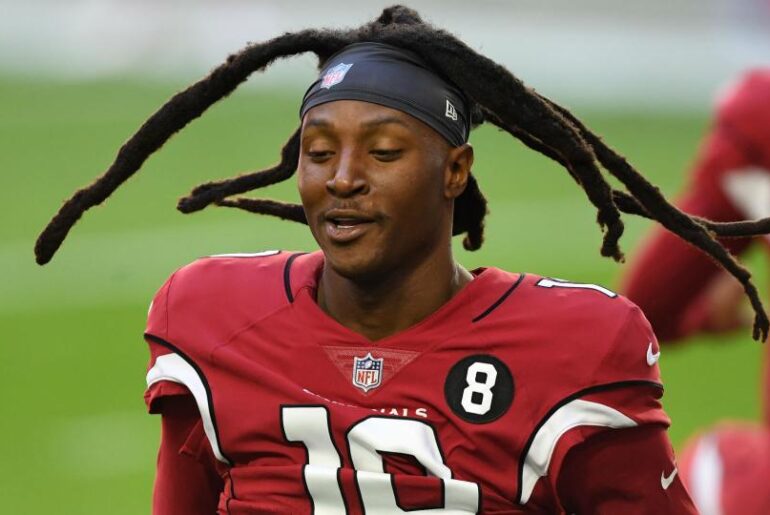The famous DeAndre Rashaun Hopkins is an American football wide receiver for the Arizona Cardinals of the National Football League. He played college football at Clemson and was drafted by the Houston Texans in the first round of the 2013 NFL Draft. Hopkins is a five-time Pro Bowler and has also been named to five All-Pro teams.
In a Week 1 matchup against the Tennessee Titans, Hopkins had six receptions for 83 yards and two touchdowns in the 38–13 rout. On October 24, a Week 7 game against his former team the Texans, Hopkins caught seven passes for 53 yards and a touchdown in the 31–5 win for the eighth straight defeat and a perfect 7–0 record.
After the Thursday Night Football loss to the Green Bay Packers, 24–21, Hopkins missed the next three weeks with a hamstring injury. In Week 14, he suffered a torn MCL and was placed on injured reserve on December 18. He finished the season with 42 catches for 572 yards and eight touchdowns through 10 games.
Where did DeAndre Hopkins go to college?
DeAndre Hopkins attended The Clemson Tigers. The Clemson Tigers are the American football team at Clemson University. The Tigers compete in the NCAA Division I Football Bowl Subdivision (FBS) of the National Collegiate Athletic Association (NCAA) and the Atlantic Division of the Atlantic Coast Conference (ACC). In recent years, the Tigers have been ranked among the most elite college football programs in the United States.
Did DeAndre Hopkins play college football?
DeAndre Hopkins played college football at Clemson and was drafted by the Houston Texans in the first round of the 2013 NFL Draft. Hopkins is a five-time Pro Bowler and has also been named to five All-Pro teams.





